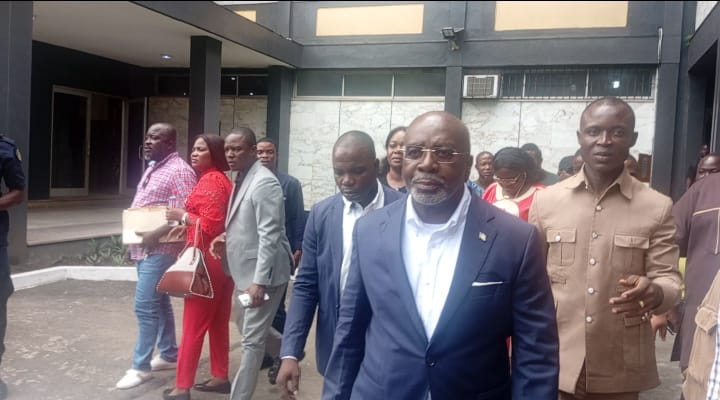The Capitol arson case, a high-profile legal battle, centers around allegations of arson against several defendants, including former House Speaker Cllr. Jonathan Fonati Koffa. The defendants vehemently maintain their innocence, challenging the prosecution’s evidence as insufficient to secure a conviction. Judge Roosevelt Z. Willie recently denied the defense’s motion to suppress the evidence, paving the way for the trial to proceed. This decision, however, has been met with strong objections from the defense, who argue that the evidence presented, including medical reports, call logs, and recordings, lacks the necessary weight to prove guilt beyond a reasonable doubt.
Central to the defense’s argument is the assertion that the prosecution lacks direct evidence linking the defendants to the arson. They point to the absence of eyewitnesses, camera footage, and forensic evidence such as fingerprints directly implicating them in the crime. Cllr. Koffa questions the “overwhelming evidence” claim by the prosecution, emphasizing the need for concrete proof of their involvement in setting the fire. He argues that the presented evidence, primarily circumstantial, is susceptible to alternative interpretations and does not unequivocally establish their guilt. The defense contends that the reliance on call logs and recordings, without other corroborating evidence, creates a weak foundation for a conviction.
The medical reports, intended to address allegations of torture and sodomy, have also become a point of contention. Cllr. Koffa criticizes the court’s interpretation and application of these reports, arguing that they are not conclusive and can be attributed to other causes. He points to inconsistencies within the reports themselves, where some suggest consistency with torture allegations, while others acknowledge the possibility of alternative explanations. Furthermore, Cllr. Koffa objects to the court’s generalization of a single defendant’s medical report to all defendants, highlighting the need for individualized assessment and consideration of each defendant’s specific circumstances.
The defense’s strategy hinges on exposing the perceived weaknesses in the prosecution’s case during the trial. They believe that the lack of direct evidence and the ambiguity surrounding the medical reports will ultimately lead to the collapse of the prosecution’s arguments. Cllr. Koffa’s public statements reflect a confidence that the trial will reveal the fragility of the prosecution’s case and ultimately demonstrate their innocence. They are prepared to challenge the admissibility and probative value of each piece of evidence presented by the prosecution, seeking to cast doubt on the narrative being constructed against them.
Judge Willie’s decision to deny the motion to suppress evidence is a significant setback for the defense. It allows the prosecution to introduce the contested evidence during the trial, forcing the defense to confront it directly. This ruling underscores the challenges facing the defense in their quest to demonstrate their innocence. They will now have to meticulously dissect each piece of evidence, highlighting its limitations and offering alternative interpretations to counter the prosecution’s narrative. The defense will need to persuade the jury that the evidence, even if admitted, does not definitively link them to the crime.
The upcoming trial is poised to be a closely watched legal battle, pitting the prosecution’s circumstantial evidence against the defense’s claims of innocence. The defense’s strategy of highlighting the gaps in the prosecution’s case, coupled with their challenge to the medical reports, will be crucial in determining the outcome. The trial represents a critical test of the judicial system’s ability to discern truth from conjecture and ensure that justice is served. Whether the prosecution can successfully connect the presented evidence to establish guilt beyond a reasonable doubt, or whether the defense can effectively dismantle the prosecution’s case and secure acquittal, remains to be seen.














